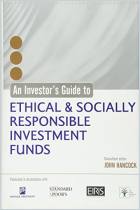
Investing in Corporate Social Responsibility
A Guide to Best Practice, Business Planning and the UK's Leading Companies
Recommendation
This book describes in great detail how major British corporations have become more socially responsible. Editor John Hancock includes in-depth chapters from various British experts and executives on key topics related to social responsibility, including investing, the environment, corporate governance and improving the quality of life. The contributors describe how the corporate social responsibility (CSR) movement is changing the way many U.K. companies conduct their day-to-day operations. U.S. corporate managers who are contending with Sarbanes-Oxley compliance may feel somewhat challenged as they read about how their U.K. counterparts now feel obligated to conduct business in a way that meets CSR standards. In fact, many U.S. business leaders may feel that the CSR push smacks of unprecedented outside interference in company goals. Since this movement is likely to strengthen, getAbstract.com believes this book is essential for British executives, of great interest to their U.S. peers and important to all corporate strategists and leaders. Never mind that the text is dry, and the various authors’ subjects sometimes overlap. Senior executives who even skim it will get a pretty clear idea of capitalism’s next phase - and many may not like what they learn.
Summary
About the Author
John Hancock is an award winning financial reporter who has more than 20 years experience covering financial issues. He was the Ethical Investment Journalist of the Year in 1999 and is the editor of An Investor’s Guide to Ethical Funds and Ethical Money.




















Comment on this summary